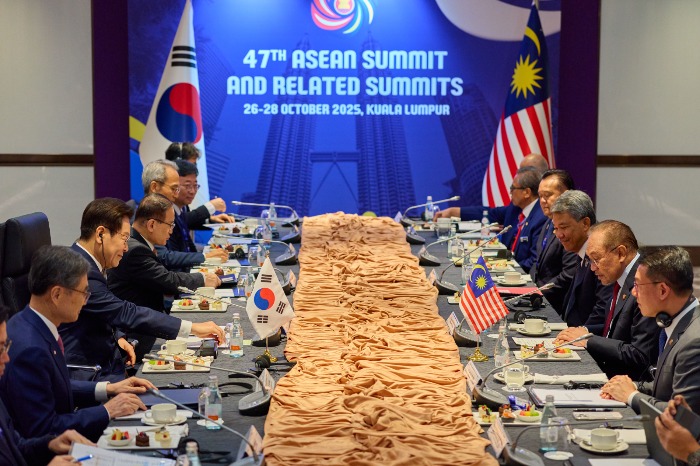UPDATE: South Korea and Malaysia have officially finalized a landmark free trade agreement during the 47th ASEAN summit in Kuala Lumpur on October 26, 2025. This critical pact, reached after six years of negotiations, will significantly boost exports of Korean automobiles and steel products to Malaysia, positioning it as Seoul’s third-largest trading partner in Southeast Asia.
The agreement is designed to deepen economic ties between the two nations, as South Korea seeks to diversify its trade relationships beyond its reliance on the United States and China. At the summit, South Korean President Lee Jae Myung announced a bold plan to increase annual trade with ASEAN countries to $300 billion, up from $192.8 billion last year.
While both nations have benefited from trade agreements since 2007, critical sectors such as automobiles and steel remained restricted under Malaysia’s industrial policy. The new bilateral deal dismantles these barriers, granting Korean exporters greater access to one of ASEAN’s most promising markets.
Under the terms of the agreement, Malaysia will eliminate or reduce tariffs on 682 products, while South Korea will do so on 288 products. This will allow Korean automakers to penetrate Malaysia’s rapidly expanding car market, which is currently dominated by local brands like Proton and Perodua, holding a combined market share of 70%. Tariffs on essential electric vehicle components, including completely knocked down (CKD) kits, will be abolished, and duties on finished electric SUVs will drop from 30% to 15%.
In exchange, South Korea will further open its market to Malaysian agricultural and marine products, which include tropical fruits like durians and pineapples, as well as shellfish. This mutual concession is expected to enhance bilateral trade dynamics significantly.
Moreover, Malaysia will eliminate foreign ownership limits in its automotive manufacturing sector, a strategic move aimed at attracting increased Korean investment in electric vehicle production and component assembly.
Officials view this agreement as a key stepping stone for expanding bilateral FTAs with other ASEAN countries, following similar deals with Singapore, Vietnam, Cambodia, Indonesia, and the Philippines.
While the deal is poised for positive economic impact, it still requires ratification from both countries’ legislatures before becoming effective. Trade officials in Seoul anticipate that this pact will strengthen economic cooperation and mitigate geopolitical risks amid the ongoing US-China trade dispute.
As developments unfold, this agreement is expected to reshape the trade landscape between South Korea and Malaysia, fostering closer ties that will benefit both economies. Stay tuned for further updates as the situation progresses.







